Q. When did you get hooked on traveling? Was it a particular trip or event?
I lived in a car when I was 16 and picked fruit for a living. A year later I bought a $150 ocean liner ticket from New York to Southampton on the SS Canberra and was bicycling through Europe. I soon wanted to get off the ant trail of backpackers and foreigners so I blew my last $400 bucks on a one way ticket Australia and worked there for a year. I learned that adventure should never have a return ticket.
Q. Tell us a little bit about the focus of your website, “Come Back Alive” – www.comebackalive.com – it doesn’t appear to be the “typical” travel website!
It’s a continuation of my work and an internet form of my book “The World’s Most Dangerous Places, Come Back Alive and The Adventurist. Essentially providing advice, stories and ideas in real time to everyone around the world for free. I also try to put some things up on Facebook and a lot of very interesting people hang out at the Black Flag Cafe.
My site Somalia Report brings hourly news from the world’s most dangerous place. My 90+ stringers create a mini-CNN from the war zone. All these information sites are also linked to my new line of adventure gear at www.dpxgear.com
Q. What keeps you returning to these “dangerous” countries again and again?
They are only considered dangerous because there are wars or insurgencies there. I always remind people there are little old ladies and children in these places. But more importantly the lack of coverage by people actually on the ground leads to distortions, propaganda, stereotypes and a general sense of fear that keeps others out. I try to break those barriers.
Q. You are now organizing trips to some of the countries that you highlight on your website through a partnership with Babel Travel Company. Tell us a little about these trips and what is their focus?
I was accused by the media of running tours to “dangerous places” because I wrote a 1000 page book that was sold in the travel section. So last year I was approached by Kevin Pollard at Babel and said “why not”. My criteria are pretty strict. We must engage people by doing something productive, meet as many sides as possible and document their trip so it becomes a guide for the next group. We have agreements with rebel leaders, muj and local elders who want people to experience what life is like for them. Not everyone is trying to kill you.
Q. With your unique travel experiences – you’ve certainly seen and experienced a number of the recent world conflicts, war zones and other dangerous regions. What are the perspectives and rewards that you’ve gained from this type of travel and experiences?
I try to not get world weary, I try to leave when I realize my mental state is being changed by war and I think it’s important that I keep a broad perspective in both time and place in combat. Warfare tends to make everything that happens at that moment very important and its important to remember that all wars end, opposing sides ultimately get back to work. But even with all this global communication there are still massive blind spots. For example the drought in Somalia began two years ago, it has only recently been discovered by the Western media. Famines in places like North Korea have little to no coverage
But travel and being with people in these places is essentially my college education that I never had and it makes me a complete person. I also give back in many ways that make small differences.
Being at critical historic points is rewarding and being around to tell others about them even more rewarding
Q. I imagine some humor helps cut through the danger sometimes – any humorous stories from your times in war zones or regions in the middle of conflicts?
Unfortunately exposure to death and violence leads to a cynical form of humor. I brought a yellow telly tubby to Iraq as a interesting decoy for insurgents. Mr DP is in itself a sense of humor recognized by those in war zones.. As for funny stories, I think I fill a thousand pages of The World’s Most Dangerous Places with funny, frightening, sad and uplifting stories.
Q. While you have spent significant time in war zones – is there a favorite country not on your “dangerous” list that you enjoy making repeat visits to – perhaps a country or a region where you can take a “vacation” and not have to worry about being in a war zone!?
Most of the world is populated with tourists. I like going to Afghanistan to truly get away. I have a Lexus SUV there and a group of Afghan friends and I go up into the mountains with friends and listen to the mujahedeen tell stories of the old days. Even “war zones” can be spectacular places. I set up tours with Babel Travel to some of my favorite spots like Burma, Somalia, and other spectacular places that are often overlooked because most people don’t know how to get there or are afraid to go.
Q. For adventurous travelers interested in visiting some of the countries you list as being dangerous, what are some of the key components they should consider when traveling to these countries?
A sense of humor, a slower sense of time, a lot of money and hot sauce.
Q. I tend to ask people about heir favorite airports – but I think it is appropriate to ask you about your least favorite airport and why?
Baghdad because they make you line up for hours in the heat and you can’t figure out what flights they are calling out, Kabul because there is nothing to do in the departure lounge and the flights are always late. and Mogadishu not because of the airport but because you have to land in Wajir and go through security again, and then take off and fly to Nairobi.
Q. You currently live in Los Angeles. While not a resident of Los Angeles I spend quite a bit of time here and have fallen in love with the area over the years. What are some of your favorite activities and or places to visit in or around the “city of angels”?
Getting out of LA would be my top pick. Its not LA but rather the spectacular mix of ocean, deserts and mountains around that I like.
BIOGRAPHY
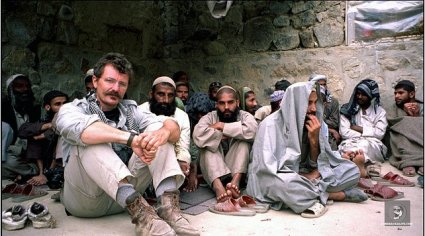
Photo courtesy of Robert Young Pelton (in Afganistan)
Author, filmmaker, journalist, and adventurer Robert Young Pelton continues to overcome extraordinary obstacles in his search for the truth. In his travels to and through the world’s most dangerous places, Pelton shares risks with his hosts, and is often the sole surviving witness to history-shaping events.
His recent journeys have taken him inside the siege of Grozny in Chechnya and to the battle of Qala-I-Jangi in Afghanistan. He was present at the rebel campaign to take Monrovia in Liberia, and accompanied the CIA in the hunt for Bin Laden.
For more info visit: Come Back Alive
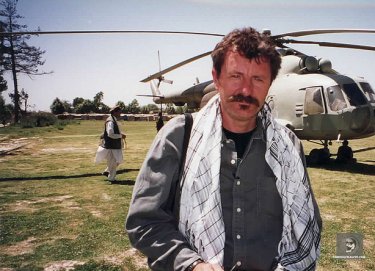
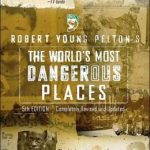
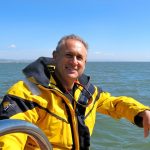
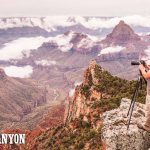


another book in bahasa malaysia translated “Beyond Machine Guns” by fahmi faiz a solo traveller from malaysia to hostlie reigion of Mindanao, Phillipines.